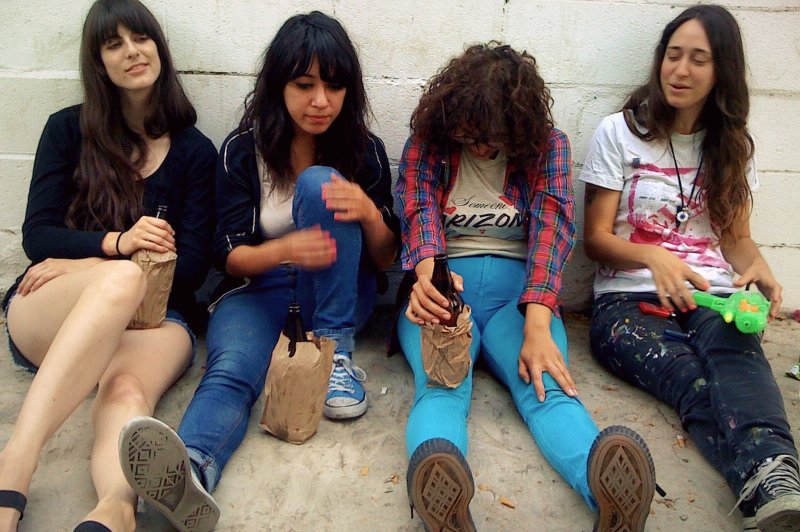Parents may be more lenient with regard to alcohol consumption with children who experience puberty early, according to a new study. Photo by Incase/
Flickr
April 28 (UPI) -- Parents of teens who experience early puberty may be more lenient toward letting them drink alcohol, a study published Wednesday by Child Development found.
Girls who went through puberty early were 29% more likely to drink alcohol and 55% more likely to do so frequently, the data showed.
Similarly, boys who went through puberty early were 22% more likely to drink and 61% more likely to do so frequently.
Boys who developed early also were 78% more likely to binge drink compared to those who went through puberty at a normal age, researchers said.
"A surprising proportion of parents in our study allowed their early-developing children to drink alcohol at the age of 14 -- in fact, one in seven," study co-author Rebecca Bucci said in a press release.
However, "it is important to remember that early puberty does not mean the child is more advanced in cognitive or brain development -- so allowing them freedoms common for young adults is risky," said Bucci, a doctoral candidate in criminology at Penn State University in State College, Pa.
Puberty is the stage of child development in which a boy or girl becomes sexually mature, and it typically occurs between ages 10 and 14 for girls and ages 12 and 16 for boys, according to the National Institutes of Health.
Earlier studies have found that adolescents who go through puberty early are at a greater risk for problem behaviors, including alcohol consumption, than their peers,
For this study, Bucci and her colleagues used data on more than 11,000 adolescents in the Millennium Cohort Study, a nationally representative sample of children in Britain.
Data was collected at various stages of the children's lives, including whether they drank alcohol, how often they drank and whether they had ever had five or more drinks on one day.
They also gathered information about whether the parents permitted alcohol use, as well as the adolescents' "perceived pubertal timing," or when they felt they experienced puberty, they said.
The researchers then grouped participants into three groups based on perceived timing of puberty -- early, on-time and late.
"In our study, the measure of pubertal timing is based on adolescents' reports of their own pubertal changes," said study co-author Lorah Dorn, a professor of nursing at Penn State.
Adolescents who experienced early puberty were more likely to drink at age 14 than their peers who went through the stage at a normal age, the data showed.
In addition, adolescents who experienced earlier puberty were more likely to be allowed to drink by their parents.
Although 15% of parents included in the study allowed their adolescents to drink alcohol at age 14, the percentage was higher -- 20% -- among those whose children went through puberty early.
Teens who developed early also were more likely to have friends who drank and more likely to be allowed to hang out with peers without adult supervision. These factors may help explain why adolescents with early puberty had higher rates of drinking than their peers, researchers said.
The findings confirm those of previous research, which has shown that "youth [who] go through puberty earlier tend to be the ones that use alcohol earlier," family studies researcher Kristine Marceau, who was not part of the Penn State study, told UPI.
The new study echoes results that suggest parents of early-developing children tend to assume their youngsters also have a higher level of maturity than their peers and are thus more lenient with behaviors, such as alcohol consumption, she said.
"Adolescence is a complicated time for parents and children. There is a lot of negotiation of responsibilities and freedoms, [though] parents are still a major influence in the lives of teens," said Marceau, an assistant professor of human development at Purdue University in West Lafayette, Ind.
For parents, "a good first step is to notice whether you're treating your young teen that went through puberty earlier appropriately for their age, and to work with them to navigate the transition to adulthood," she said.















